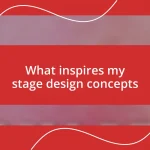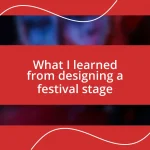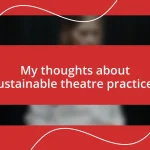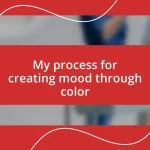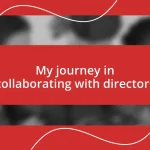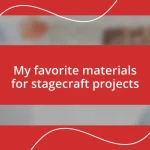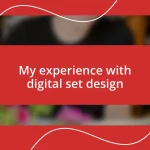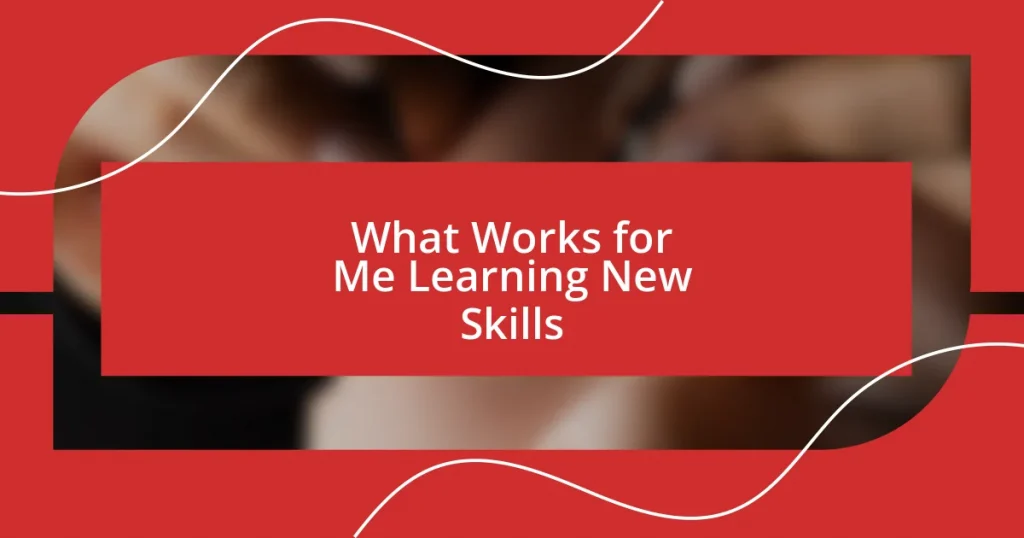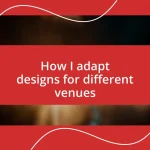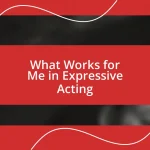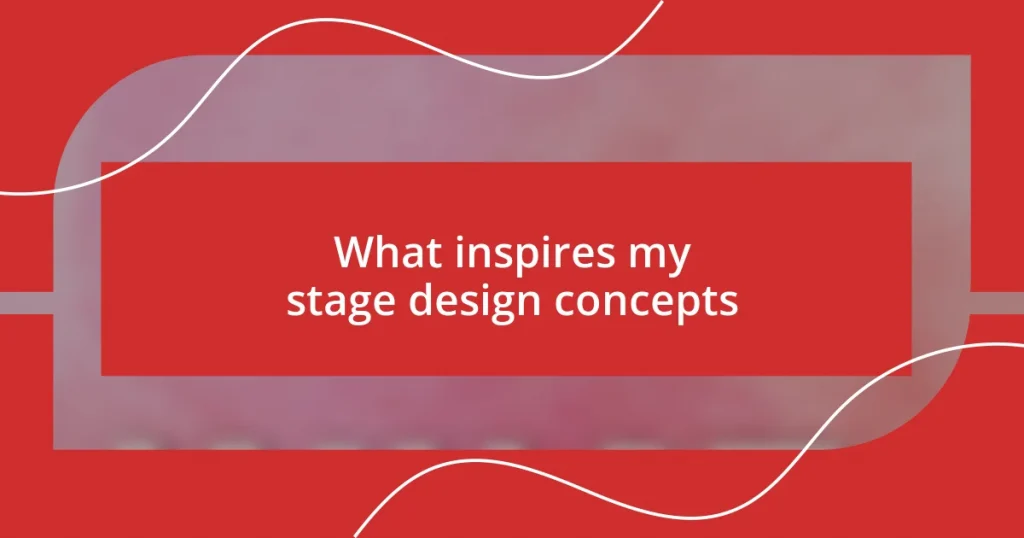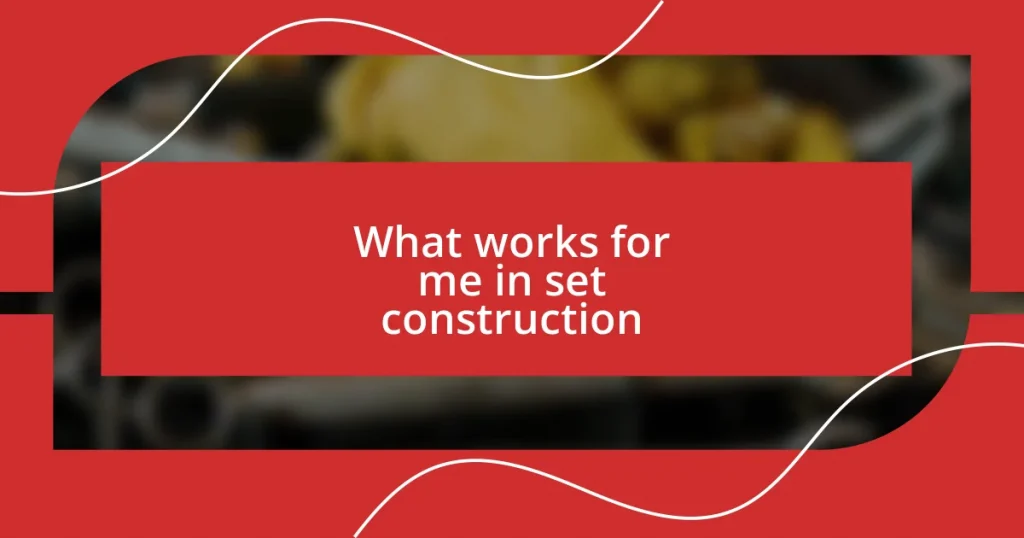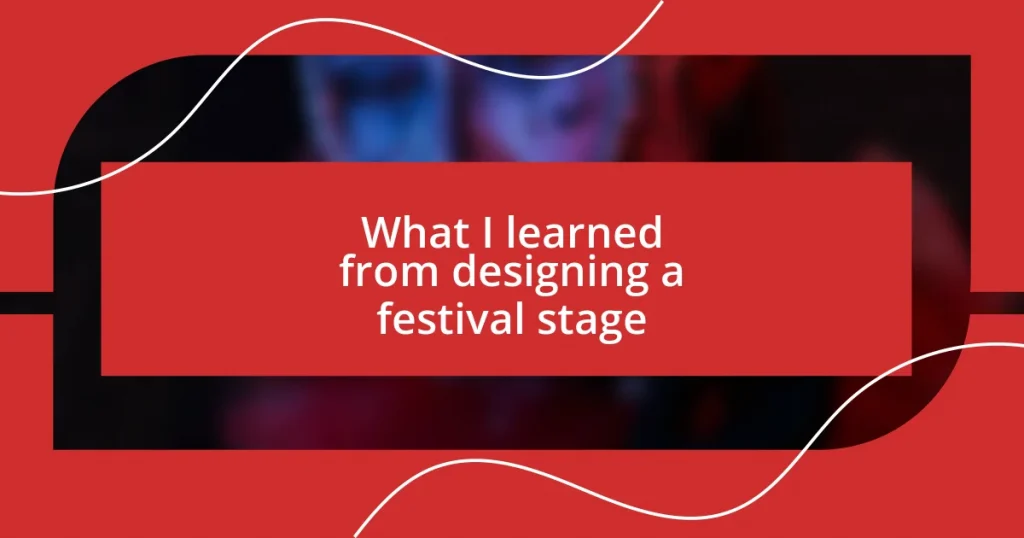Key takeaways:
- Understanding personal learning styles (visual, auditory, kinesthetic) enhances skill acquisition and makes learning more enjoyable.
- Setting SMART goals and creating a structured yet flexible learning plan can significantly improve focus and motivation.
- Real-world practice and regular reflection on the learning process help solidify skills and identify areas for adjustment and improvement.
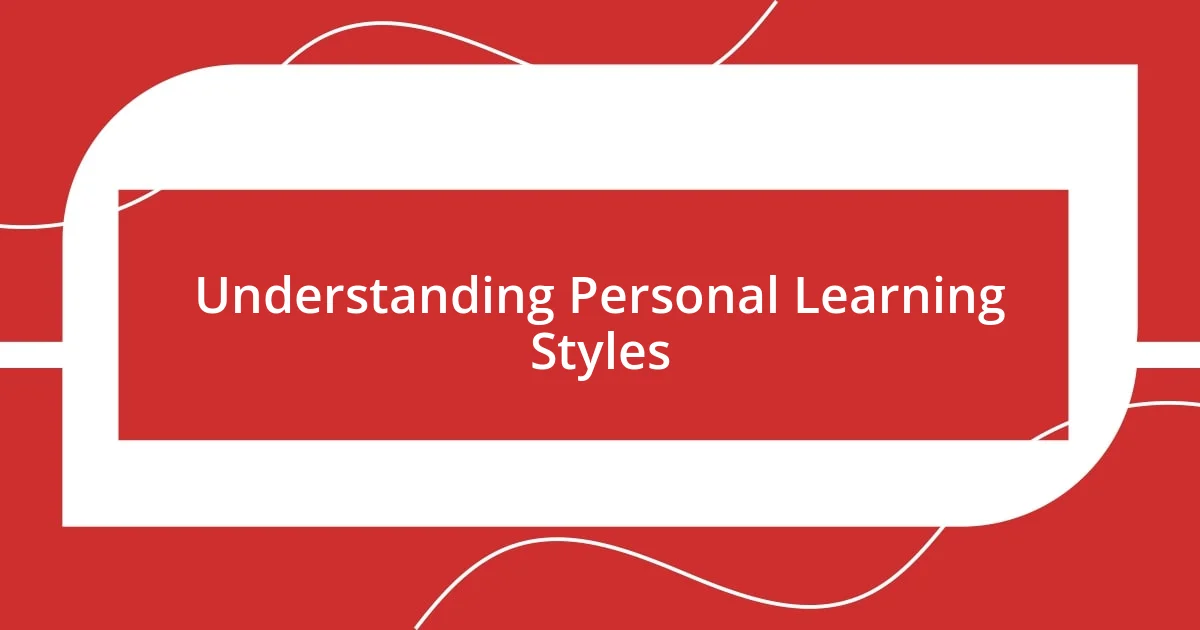
Understanding Personal Learning Styles
Understanding personal learning styles is crucial for effective skill acquisition. I remember when I first delved into learning music; discovering I was an auditory learner transformed my approach. Suddenly, I found that listening to pieces and mimicking them worked wonders compared to laboriously reading sheet music.
Reflecting on my experiences, I realize that our learning preferences shape how we absorb new information. Have you ever tried studying a new language by just reading textbooks? I did, and it was frustratingly slow. It wasn’t until I started engaging in conversations and listening to native speakers that the language clicked for me. This highlights how visual, auditory, and kinesthetic styles can play a significant role in our learning journeys.
Every time I adopt a new skill, I examine the methods that resonate with me. For instance, when I learned to cook, I thrived with hands-on practice but craved the visual inspiration of cooking shows. It made me wonder—how many of us dive headfirst into learning without acknowledging our individual styles? Understanding yours can not only elevate your learning experience but also make it significantly more enjoyable.
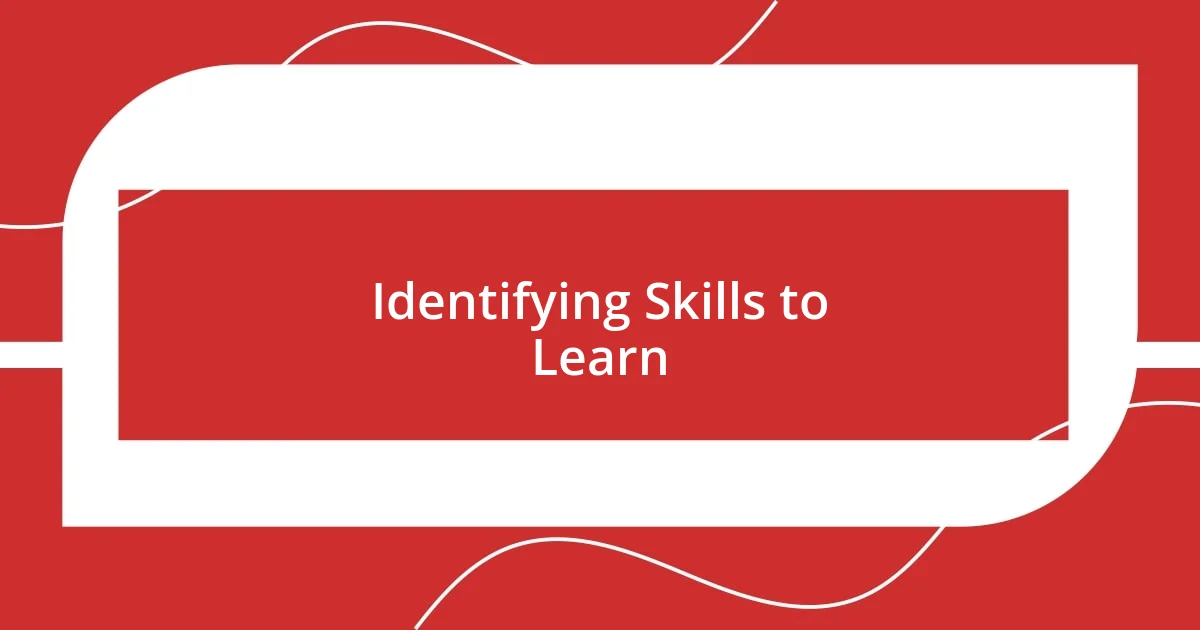
Identifying Skills to Learn
Identifying the right skills to learn can feel daunting, but I’ve found it to be a deeply personal journey. For me, reflecting on my passions and interests has always played a pivotal role. When I decided to learn graphic design, I started by exploring my childhood love for art. Engaging with that interest not only ignited my motivation but also guided me toward specific skills within a broad field.
When looking for skills to learn, consider these factors:
- Passion: What genuinely excites you?
- Relevance: How does this skill align with your career or personal goals?
- Market Demand: Is this skill sought after in your field?
- Resources: Do you have access to tools or mentors in this area?
- Past Experiences: What skills have you enjoyed learning before?
My journey in learning to play the guitar illustrates this well. I had a fascination with storytelling through music, which spurred me to focus on songwriting alongside playing. By identifying my core interests, I not only developed specific skills but also immersed myself in a creative process that felt authentic and fulfilling.
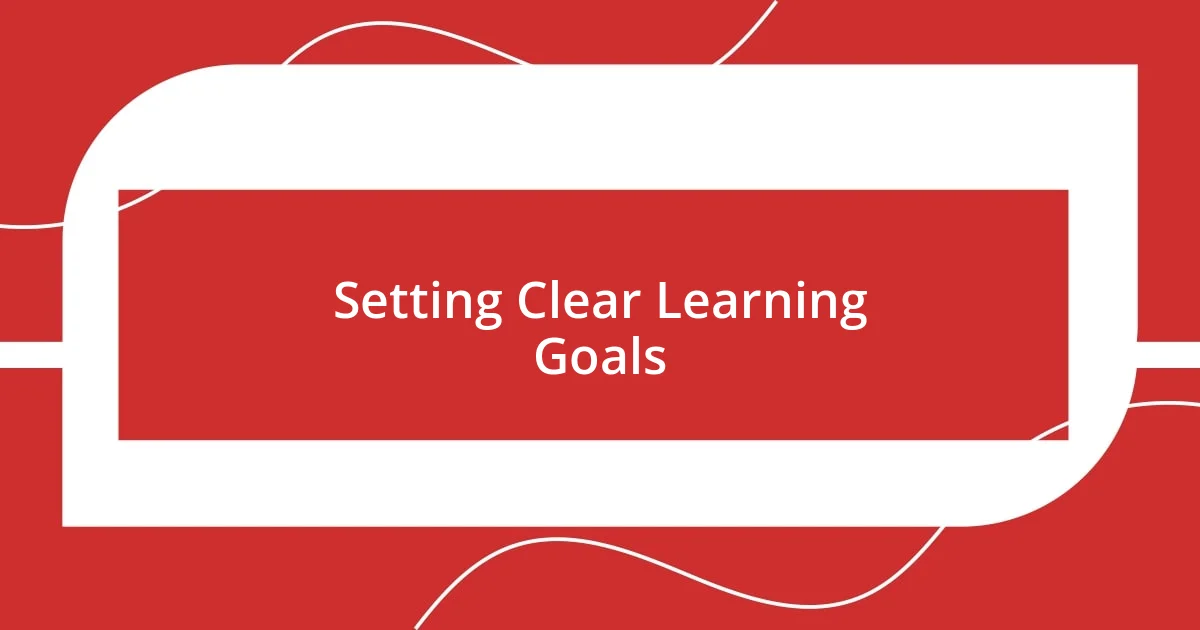
Setting Clear Learning Goals
Setting clear learning goals is a game changer when it comes to skill acquisition. I remember setting a goal to learn Spanish; instead of vaguely saying, “I want to be fluent,” I defined my target as “hold a 15-minute conversation in three months.” This clarity helped me create focused study sessions and motivated me to track my progress consistently.
To me, effective learning goals should follow the SMART criteria: Specific, Measurable, Achievable, Relevant, and Time-bound. For instance, when I aimed to improve my public speaking skills, I set a measurable goal: “Deliver a presentation at a local meetup within two months.” This not only held me accountable but also made the process feel structured. It’s interesting how breaking down large goals into manageable steps can turn a daunting task into an exciting challenge!
Have you noticed how setting a specific timeline can instill a sense of urgency? I once procrastinated learning graphic design until I committed to finishing a course by a certain date. That shift made all the difference; the deadline spurred me into action and kept me engaged! The journey of learning becomes so much more engaging when we pinpoint not just what we want to achieve, but also how we plan to get there.
| Goal Type | Example |
|---|---|
| Vague Goal | Become fluent in a language |
| Clear Goal | Hold a 15-minute conversation in Spanish in three months |
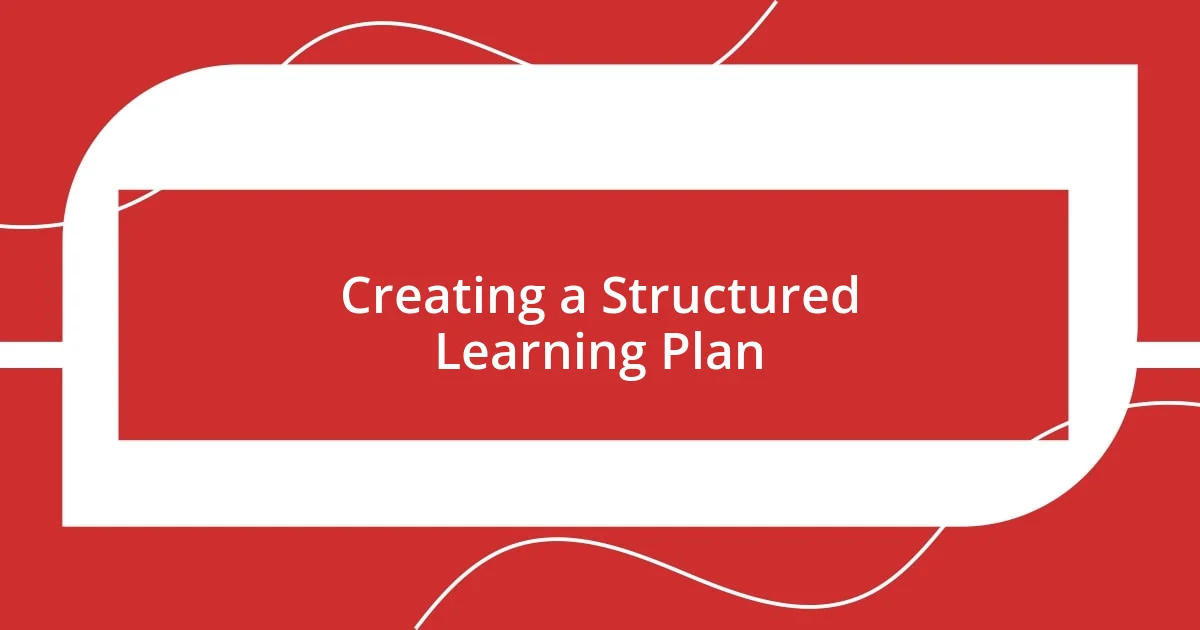
Creating a Structured Learning Plan
Creating a structured learning plan has truly transformed the way I approach picking up new skills. I recall when I decided to learn photography; rather than just jumping in, I sketched out a step-by-step plan. This included identifying the types of photography I wanted to explore, choosing a few essential online courses, and allocating specific times in my week for practice. It’s amazing how having that structure gave me clarity and purpose.
One thing I’ve learned is the importance of flexibility in your plan. Life can throw unexpected challenges our way! I remember committing to a strict schedule during my coding bootcamp and quickly realizing that I needed to adjust to keep up with the pace. By allowing myself to tweak my plan as necessary, I was still able to make lasting progress without overwhelming myself.
Have you ever felt stuck because your plan was too rigid? I once experienced that with my attempt to learn French; the pressure of sticking to a strict syllabus left me feeling burnt out. Embracing adaptability not only kept my motivation alive but also helped me discover joy in the journey of learning itself. Structured plans are essential, but it’s just as critical to listen to yourself and make adjustments along the way.
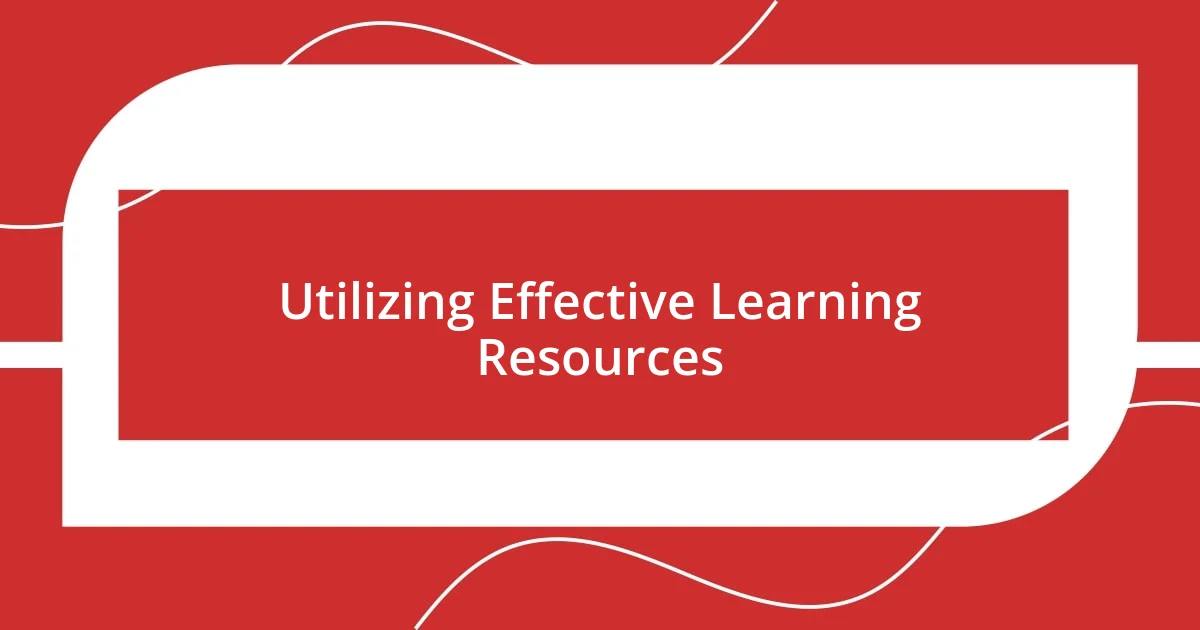
Utilizing Effective Learning Resources
Utilizing effective learning resources has been a pivotal aspect of my skill-building journey. I remember discovering a fantastic online platform that offered a multitude of courses tailored to my interests. The first time I signed up for a video course on digital marketing, I was amazed at how the engaging content kept my attention. It felt like having a personal mentor guiding me through each concept. Have you ever found a resource that just clicked for you? It’s incredible how the right materials can ignite that spark of curiosity and commitment.
I find that mixing up the types of resources I use can deepen my understanding of a subject. For instance, while learning guitar, I supplemented my video lessons with podcasts and even brought in some sheet music for hands-on practice. This combination not only kept my learning varied but also helped solidify the concepts in my mind. It’s as if each resource painted a different facet of the same picture! Do you think using a variety of sources enriches your learning experience too? From my perspective, it makes the process feel more alive and dynamic.
Sometimes, I encounter resources that just don’t resonate, and that’s perfectly okay! I once took a popular online course that promised to enhance my public speaking skills, but I quickly discovered that the teaching style wasn’t my cup of tea. Rather than feeling defeated, I treated it as a stepping stone—an opportunity to refine my search for materials that truly inspire me. It’s fascinating how even the less-than-ideal resources can guide us closer to what works best for us, don’t you think? Learning is such a personal journey, and embracing that uniqueness makes all the difference.
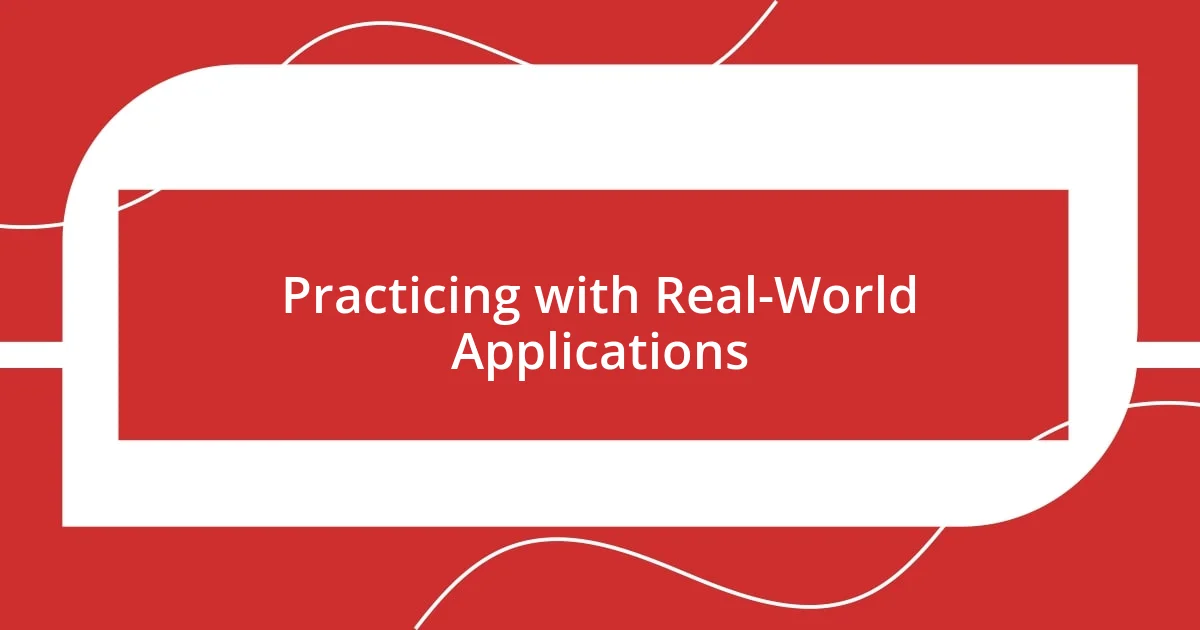
Practicing with Real-World Applications
Practicing with real-world applications has been crucial for me in solidifying new skills. When I started baking, rather than just reading recipes, I dove right in and hosted a small gathering to share my creations. It was exhilarating! That moment when friends savored my homemade cookies boosted my confidence and helped me understand the nuances of baking that books couldn’t convey.
I often reflect on my time learning to code. Initially, I practiced by completing exercises online, but it wasn’t until I took on a personal project—building a simple website for a friend—that everything clicked. The rush of bringing something tangible to life made the concepts feel so much more relevant. Have you ever noticed how applying what you’ve learned to real situations makes it stick? That hands-on experience not only reinforced my coding skills but also taught me how to troubleshoot, an essential aspect of programming.
Integrating my skills into everyday activities has made a world of difference. For example, I started incorporating the photography techniques I learned into family outings, capturing candid moments. The smiles and laughter shared during those outings brought a deep sense of fulfillment. Isn’t it amazing how real-world practice transforms learning into something personal and memorable? It’s like taking theory and weaving it into the fabric of our lives, creating a richer, more meaningful learning experience.
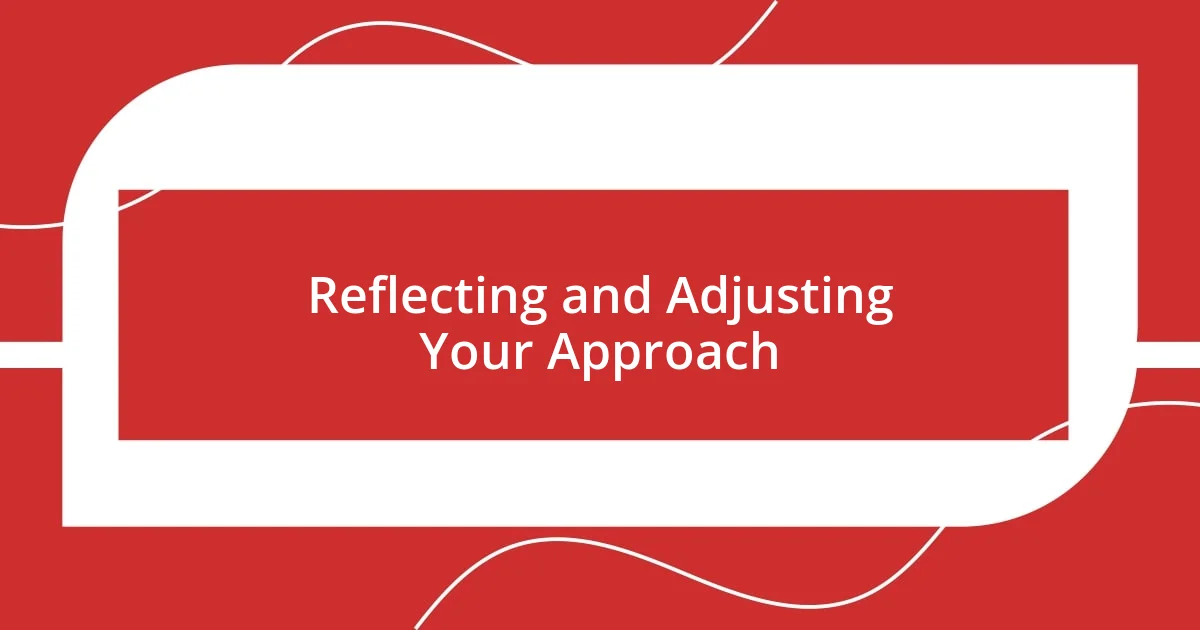
Reflecting and Adjusting Your Approach
Reflecting on my learning approach is like checking the compass on a long journey. During my recent attempt to learn a new language, I initially focused heavily on vocabulary apps. But as I progressed, I realized my conversational skills were lagging. One day, I decided to join a local language exchange group, and it was a game changer! Suddenly, I was sparking up conversations and making real connections. Have you ever had a moment where a simple change in your routine opened up new horizons for you?
Adjusting my strategy has proven just as important as my initial choices. I recall a time when I tried to learn guitar solely through online tutorials. It wasn’t until I hit a plateau that I switched gears by attending a music workshop in person. The energy in that room—it was electric, and it reignited my passion for playing. Wouldn’t you agree that sometimes a change in environment can recharge your motivation? I felt like a weight had been lifted, and everything clicked into place.
I continuously remind myself that learning is not a straight path. There are bumps and detours along the way. I remember when I was struggling with public speaking. My first few attempts were scattered and nervous. Rather than sulking, I reflected on what worked and what didn’t. I started recording myself and watching those videos to identify areas for improvement. That self-critique was tough but incredibly rewarding. Have you encountered setbacks that pushed you to discover your strengths? For me, reflecting on the process has been just as beneficial as acquiring new skills.
